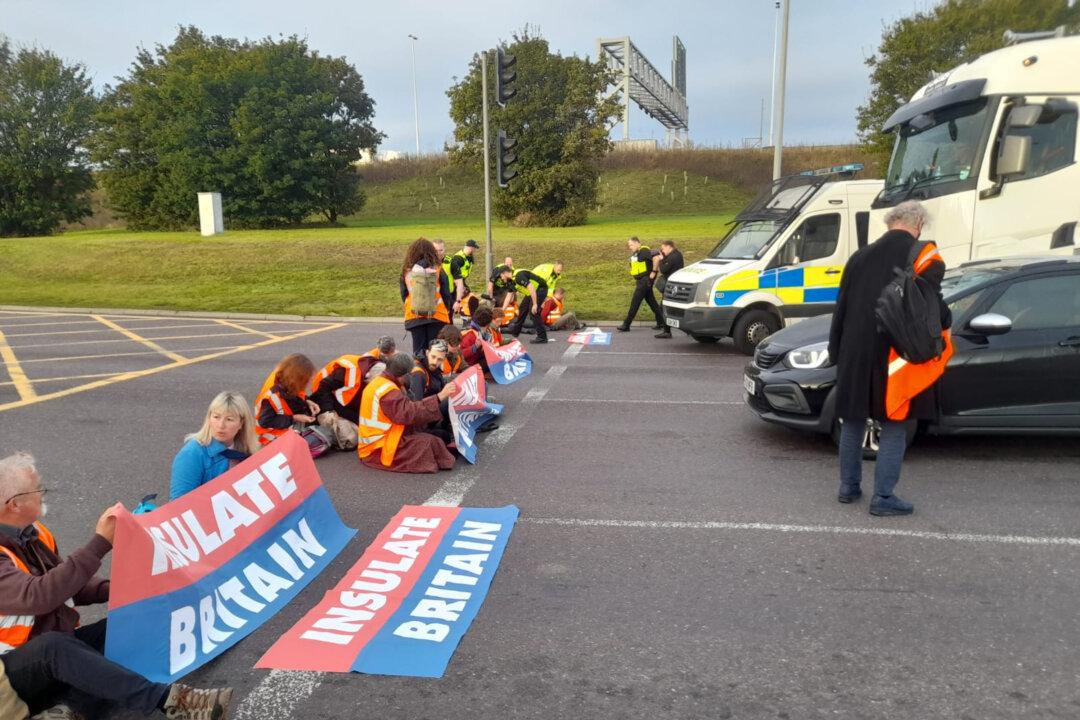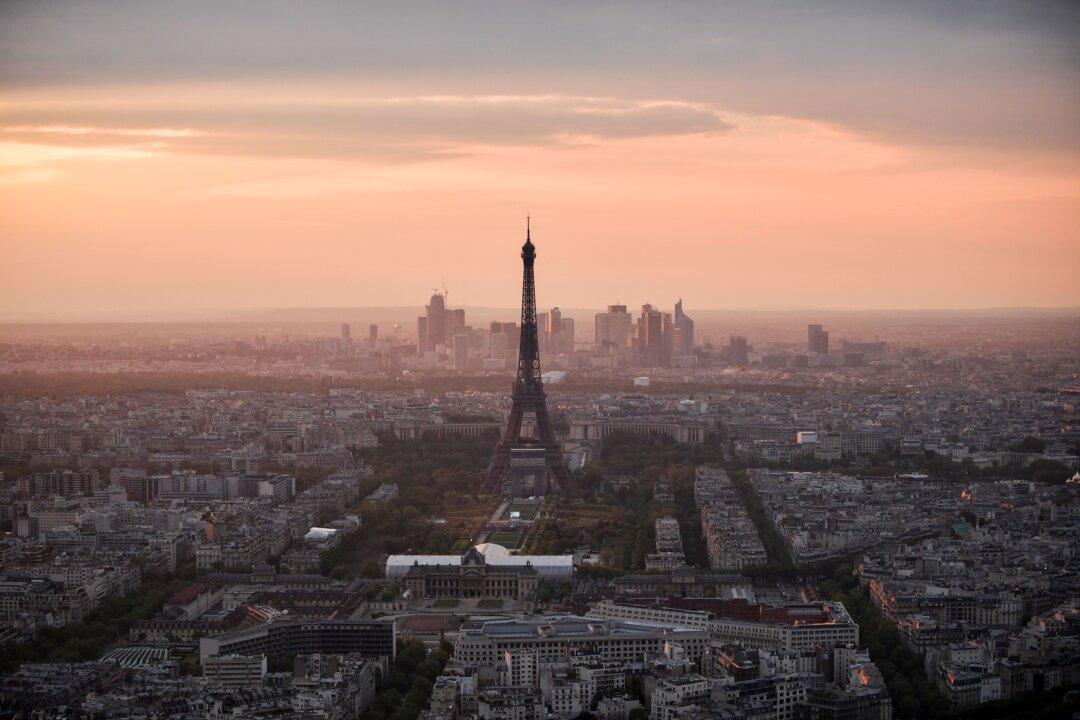A judge has cleared four climate change protesters who blocked access to Britain’s busiest motorway during a protest in 2021 after ruling that a conviction on a charge of wilful obstruction of the highway would not be “proportionate.”
Police arrested 38 activists from the campaign group Insulate Britain after junctions 9 and 10 of the M25 were obstructed for 13 minutes from 7.57 a.m. on Sept. 21, 2021.





